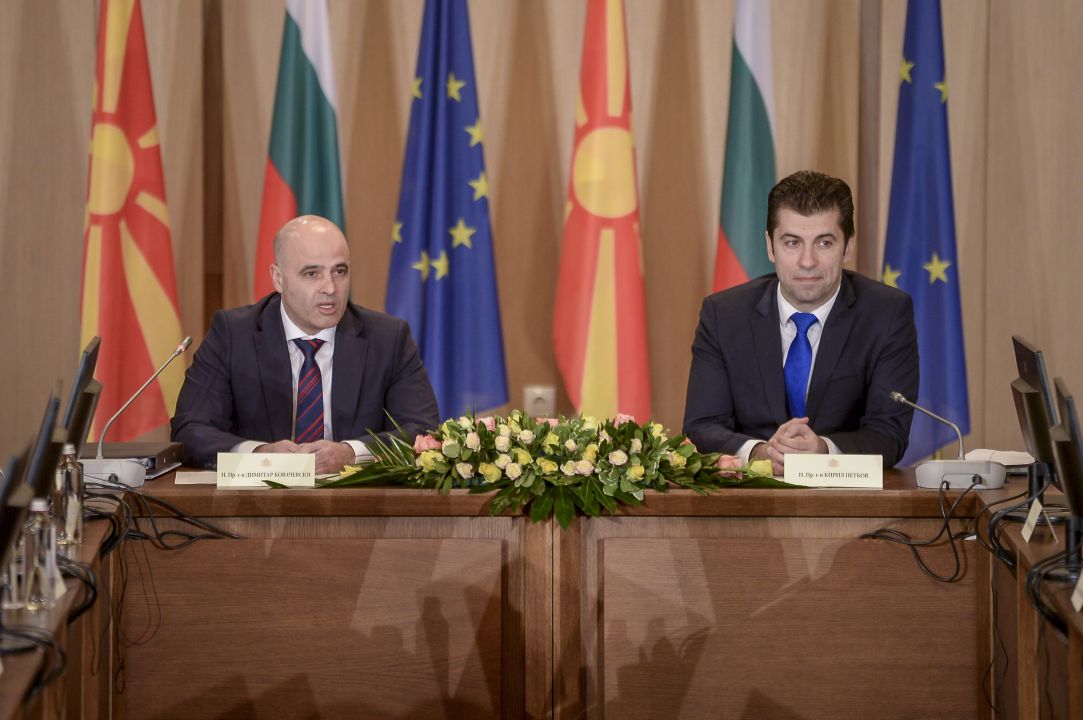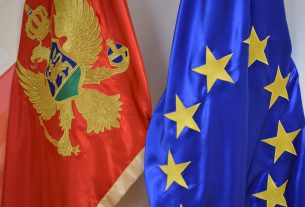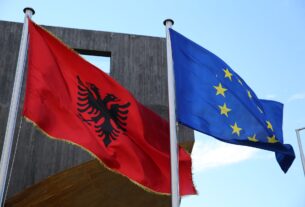This piece was originally published on BiEPAG blog
So, the Bulgarian veto is relegated to the past. On 24 June, the National Assembly in Sofia voted overwhelmingly to endorse the plan floated by the French Presidency of the EU Council on resolving the dispute between Bulgaria and North Macedonia. The motion, tabled by the Democratic Bulgaria Party, won support from across the spectrum, with the exception of the far-right Rebirth (Vazrazhdane) and the populist There’s Such a People (ITN). Two days after a no-confidence vote toppled the coalition cabinet of Kiril Petkov, Bulgarian parties put up a show of unity. North Macedonia’s path to EU membership talks is now clear, the narrative goes. Albania is held up no more either, having been hostage to the veto as its bid is effectively coupled with that of its EU neighbour.
There is no cheering in Skopje, however. For the Macedonian government the French proposal is a poisoned chalice. It ties the substantive start of negotiations to a constitutional amendment inserting Bulgarians as one of the constitutive communities of North Macedonia. That is hard to swallow for Macedonians as they perceive such a concession as capitulation to the Bulgarian version of their country’s history. Sofia questions the historic existence of a Macedonian nation, certainly before 1945, and considers the Macedonian language a Bulgarian dialect.
The dispute has ebbed and flowed pretty much since the early 1960s when the Bulgarian Communist Party embraced nationalism and dropped its previous endorsement of Macedonian nationhood hitherto. Until 1992, Skopje could count on the protective shell provided by Yugoslavia. But now Bulgaria, a member of the EU since 2007, has turned the tables and is twisting the arm of North Macedonia. Taking inspiration from Greece, which for nearly a quarter of century blocked the Macedonians, Sofia is leveraging Brussels in order to bully its neighbour. Understandably, such tactics evoke a huge amount of resentment.
In principle, North Macedonia’s government has signalled willingness to insert Bulgarians into the preamble of the constitution; most likely together with Croats and Montenegrins. But it has been insisting on doing that after membership talks began. Skopje also wants to keep bilateral relations outside the negotiations, as well as some sort of reference to Macedonian language and identity in the negotiating framework. It has, likewise, been pushing for guarantees that Bulgaria won’t block the talks, putting forward additional demands. However, the French proposal pays little heed to the Macedonian position.
Many EU watchers see a dangerous precedent. To them, Bulgaria is ‘Europeanizing’ a bilateral issue and, therefore, hijacking enlargement. That is not unprecedented. Prior to 2013, Slovenia blocked Croatia over a territorial dispute concerning the bay of Piran in the Adriatic. But what is even more concerning this time around is that the Bulgarian demands to do with the contested past are being formally integrated in the negotiation framework, those are the marching orders prepared by the EU Council for the European Commission, which is conducting the actual membership talks. In other words, the Union – including member states like Croatia and Slovenia which once formed part of Yugoslavia – is collectively ganging up on North Macedonia to indulge the Bulgarians.
It does not take a great deal of imagination to picture Croatia pulling the same trick on Serbia or Montenegro in the future. Member states could develop a taste for hijacking EU policies. Such critics contend that the only way to salvage Enlargement, or EU foreign policy more broadly, is to scrap the unanimity principle in favour of qualified majority voting (QMV). There would be no more being held ransom by Bulgaria – or Greece, or Hungary, for that matter!
Whether the above is feasible or not, one thing is for certain: you wouldn’t want to be in the shoes of North Macedonia’s embattled Prime Minister, Dimitar Kovachevski. He is facing a classic “damned if you do, damned if you don’t” situation. Bowing to Bulgaria might put an early end to his brief tenure. The right-wing nationalist VMRO-DPMNE which triumphed at last year’s local elections is breathing down his neck. And it is adamantly opposed to the French proposal.
Even worse, Kovachevski needs DPMNE’s votes if he is to pass the constitutional amendments Bulgaria – and potentially the EU as a whole – is demanding. At the same time, North Macedonia is presented a historic opportunity to finally set off on the path to membership. Albania, once far behind in the queue, will most likely launch its talks, too. Edi Rama, having slammed Bulgaria for days on end, has now changed his tune. He thanked the former Prime Minister Boyko Borisov (ironically, the person responsible for the veto) for making sure the vote in the Bulgarian Parliament passed. Kovachevski is left alone. He is pulled in different directions by the EU and by his constituents. The prime minster rejected the French proposal but might find it difficult to hold his ground.
It looks as if Bulgaria has scored a major diplomatic coup by rallying the EU to its cause. Yet in the long run, it is a Pyrrhic victory. Bulgarian politicians have alienated a people that, according to textbooks, is their ethnic kin. The battle for hearts and minds Sofia supposedly waged, is lost. Some of the damage might eventually be repaired but it will take a long time. The neighbourly quarrel will probably de-escalate but it could be back with vengeance soon enough.
The post Bulgaria and North Macedonia: No Light at the End of the Tunnel appeared first on European Western Balkans.





